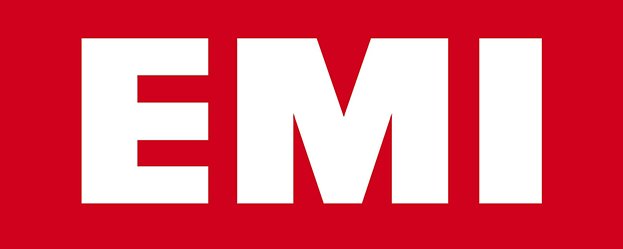This website uses cookies so that we can provide you with the best user experience possible. Cookie information is stored in your browser and performs functions such as recognising you when you return to our website and helping our team to understand which sections of the website you find most interesting and useful.
CMU Trends Labels & Publishers
Trends: The end of EMI
By Chris Cooke | Published on Wednesday 15 January 2014

So, the music rights industry now has three major players. The two mega-majors: the Universal Music Group of French business Vivendi, and the various music companies of Japan’s Sony Corp. And the mini-major: the Warner Music Group, owned by US conglom Access Industries. While the UK subsidiaries of all three majors are big global players, technically the British music rights industry is now all about the independents.
Although the two big deals that brought about the end of the British major music company EMI were struck in 2011, and received regulator approval in 2012, the mop-up of the most recent mega music merger occurred in 2013. Sony/ATV and Universal Music sold off the assets they committed to divest to get regulator approval for their respective EMI deals, and restructured their own operations to integrate their new toys.
THE EMI DIVESTMENTS
Of course the EMI Group was split up by its final owners Citigroup before being sold off. The music publishing business was bought by a Sony-led consortium, and now operates as a subsidiary of Sony/ATV, Sony Corp’s publishing joint venture with the Michael Jackson Estate. The EMI record company was sold to the Universal Music Group, already the biggest music rights company in the world, and now even more so.
It was Universal’s restructuring and regulator-pleasing divestments that garnered the most attention in the last year, mainly because the sell-offs Sony/ATV agreed to were much smaller (and all went to BMG) and its EMI deal was approved sooner, meaning much of the rejigging actually occurred in 2012.
Universal’s big divestment deals kicked off in December 2012 and were completed in February 2013. The Mute and Sanctuary recording catalogues also went to BMG, the Co-op Music label services business was bought by [PIAS], and the EMI stake in the ‘Now That’s What I Call Music’ franchise went to Sony. Then Warner Music got most of the other European assets Universal was forced to offload by the competition regulator.
While these divestment deals were being negotiated, the EMI units for sale were spun off and operated seperately under the name Parlophone Label Group, and it was basically that business that Warner Music agreed to buy in February. The deal won the support of the indie label community, at least half of which had been strongly opposed to the original Universal/EMI merger. But Warner’s Parlophone purchase came with an agreement to work with indies on exploiting the PLG catalogue. Though quite how that alliance will work remains to be seen.
WARNER’S INTEGRATION OF PARLOPHONE
As the PLG name suggests, at the core of the assets bought by Warner Music was the Parlophone UK business, both the frontline label and its lucrative catalogue (minus the all important Beatles recordings).
Rather than introducing a third frontline pop/rock division within its UK business, Warner decided to merge Parlophone with its existing Warner Bros UK label, though the two label brands will seemingly remain, each with their own A&R team. But both will then report into one Parlophone/Warner Bros management team, led by Miles Leonard, which will in turn report into newly appointed (in 2013) Warner Music UK boss Max Lousada. Meanwhile marketing and distribution of most Parlophone artists will be handled in the US by the Warner Bros team there.
UNIVERSAL’S INTEGRATION OF EMI
Over at Universal, there was a merger of frontline labels too. In the UK the mega-major got to keep the Virgin Records business, which it was announced would operate as Virgin EMI moving forward. But Universal also didn’t want to increase its overall number of frontline labels in the UK (which already numbered four), and instead merged Virgin EMI with its existing Mercury division. In the US, EMI’s flagship label was always Capitol, and Stateside that has been allowed to remain as a standalone entity (albeit with a new management structure).
Meanwhile, having lost what was possibly EMI’s most famous label brand in the UK – ie Parlophone – Universal announced that it would launch two of EMI’s American brands in Europe for the first time. The first was the aforementioned Capitol, which now has a UK base, albeit as a smaller imprint label basically taking over what was Universal’s London Records. The second was Caroline, EMI’s indie distribution company in the US, and now the name of Universal’s new label services business in Europe as well (the EMI label services business having gone to Warner with PLG, and Universal’s own Co-op company having also been sold).
ELSEWHERE IN MUSIC RIGHTS…
The long-drawn out EMI deal having hung over the music rights business for over two years, there was little talk of any further major consolidation in the sector this year. Although some ownership changes occurred or were considered. Bertelsmann regained full ownership of the version two BMG company, a significant Sony Corp investor called (unsuccessfully) for the Sony entertainment business to be floated, and Vivendi was offered a reported £8.5 billion to buy Universal Music, an offer it declined.





